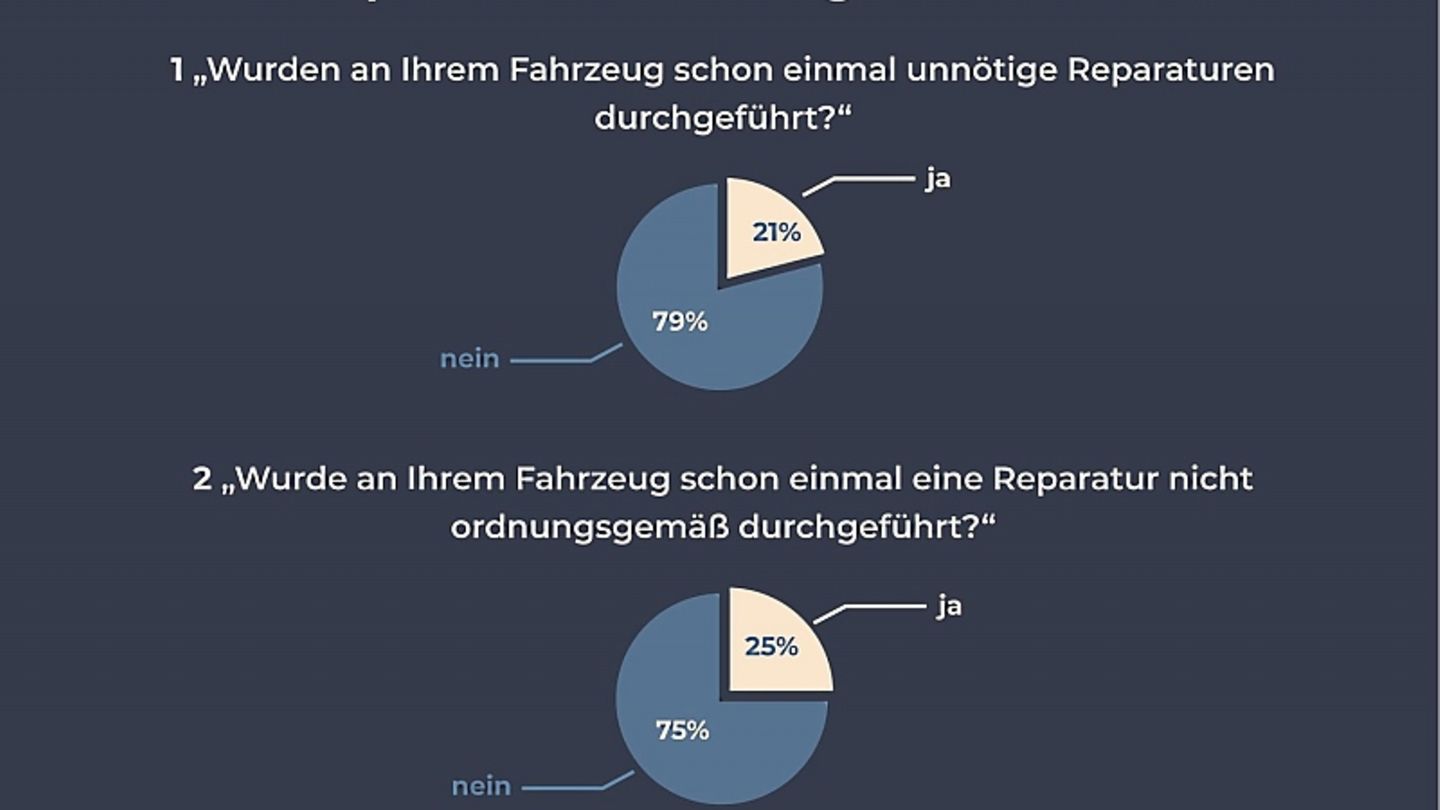What role do workshops play for German drivers. A study commissioned by the repair and maintenance app Carly reveals interesting differences between electric car owners and those who own a combustion engine car. Company car drivers play a special role.
For decades, the car was the German’s favorite child. On Saturday long queues formed in front of the car washes and in the afternoon the master of the house brought the vehicle back into shape. All was right with the world only when the bumper and the chrome hubcaps shone in the sunlight. It was the same with a visit to the workshop, if just one screw wasn’t tightened properly or the V-belt complained a little, it was off to a specialist.
How does it look today? Is the relationship between the workshop and the driver still so untroubled? Not quite. In a survey commissioned by the repair and maintenance app Carly, 21 percent of drivers complained that unnecessary repairs had already been carried out in the workshop, and one in four was not satisfied with the work of the experts. TÜV Rheinland specifically surveyed company car drivers for its Workshop Monitor 2021 and 94 percent of them are very satisfied or satisfied with the independent workshops, 90.3 percent of brand workshops and 88.9 percent of workshop chains.
What happened to do-it-yourself? Screwing together used to be a leisure activity. Not today. For the majority of the drivers surveyed on behalf of Carly, working on the car yourself is out of the question: half of those who own a vehicle with a combustion engine never use a wrench, and another 24 percent only rarely. The situation is only slightly different among electromobilists, where 41 percent do nothing themselves and 31 percent rarely lend a hand. Only three percent of all respondents screwed themselves. The reason for this is probably the complex technology that can no longer be mastered without expensive equipment such as diagnostic devices.
It is interesting that 80 percent of BEV drivers rate their car competence as high to very high, compared to only 24 percent of combustion engine drivers. So it fits the picture that according to the Carly study, only seven percent of the self-proclaimed BEV experts always use free inspection offers such as light tests and only nine percent do this most of the time. More responsible are the owners of cars with internal combustion engines, with almost every fifth (19 percent) always taking advantage of such offers and 23 percent almost always. The gap widens even further when it comes to making an appointment. While every third electric vehicle driver uses a digital booking system, drivers of cars with combustion engines (50 percent) use the good old telephone. The workshop monitor 2021 from TÜV Rheinland shows that company car drivers would prefer digital systems to make appointments, but 88 percent use the phone after all. Apparently, the range of workshops in this field is not yet so well developed.
Not all garages are so precise when it comes to meeting the deadlines for repairs: 34 percent of drivers of vehicles with a combustion engine have had to wait longer than announced for their vehicle. In the case of BEVs, the figure is even 56 percent. The fact that electric mobility is still more unknown territory than routine for many and training does not cover every problem and often more software specialists are in demand than overalls experts could play a role here. Consequently, more than a third (34 percent) of electric car owners continued to struggle with problems after their visit to the workshop, compared to only 25 percent of combustion-engine cars.
Nevertheless, among the Carly respondents, the workshop connection is very pronounced: only one in five (21 percent) uses different workshops, the rest remain loyal to the company of their choice. Independent workshops (55 percent) and authorized workshops almost share the same scale. The fact that independent workshops are ahead by a nose is due to the fact that the vast majority of the study participants travel in a private car; the ratio is likely to be different for company car drivers, since maintenance in authorized workshops is contractually stipulated there.
However, for some drivers, visiting a workshop has become a necessary evil: 14 percent only seek professional help when there is no other option and something really needs to be repaired. Most (83 percent) only turn off the car when the general inspection is due. More than three quarters of those surveyed (76 percent) comply with the maintenance intervals. It will be interesting to see how drivers deal with error messages. Only 53 percent turn to a specialist garage as soon as a warning light flashes. It is not surprising that for the vast majority (81 percent) the price-performance ratio is particularly important, but all the more so that only just under half (52 percent) attach importance to the competence of workshop employees.
Source: Stern
I am a 24-year-old writer and journalist who has been working in the news industry for the past two years. I write primarily about market news, so if you’re looking for insights into what’s going on in the stock market or economic indicators, you’ve come to the right place. I also dabble in writing articles on lifestyle trends and pop culture news.




